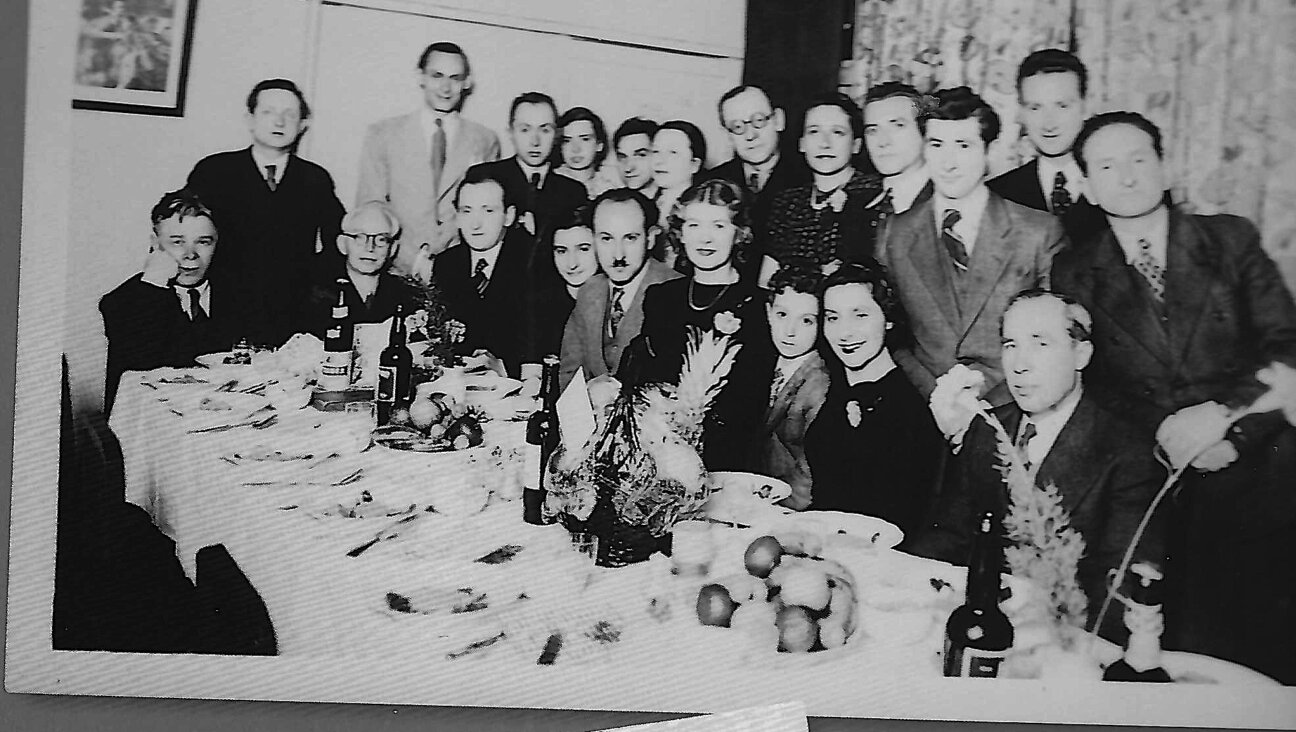How Breastfeeding Israeli Marathon Runner Went From Olympic Hero to Scapegoat

Lonah Chemtai Korlima Image by Haaretz
Within less than six months, Lonah Chemtai Korlima has gone from being embraced by the public as she fought the bureaucracy to obtain Israeli citizenship to facing a storm of criticism over her performance at the Olympics.
Chemtai arrived in Israel as an employee of the Kenyan consulate and later married track coach Dan Salpeter. Last February, after she qualified to run the marathon in Rio, the public, the media, the Israeli Athletics Association and the Olympic Committee of Israel all mobilized to help her obtain citizenship.
She and Salpeter had their first child 20 months ago, and Chemtai is still breastfeeding him. Even while en route to the Tel Aviv marathon, where she qualified for Rio, she and Salpeter turned around and went back home when her mother-in-law called to say he was hungry. “She got out of the car, nursed him for 15 minutes, and then we went on to Tel Aviv,” Salpeter recalled.
Last Sunday, Chemtai was on the starting line for her first Olympics, waiting to realize the dream that she and her husband had worked so hard to achieve. But she left the race at the 33rd kilometer.
Later that day, she posted an explanation on Facebook. “Unfortunately, I was forced to stop by a shoulder problem,” she wrote. “As you all know, I’m still nursing my 20-month-old son. During my training in Kenya, I tried to stop, but it caused me pain and a shoulder problem due to running with breasts full of milk. This limited me in the European championships in Amsterdam (a half-marathon) and happened again today. I promise to attain respectable achievements in the future and am going forward with head held high.”
Many people responded with sympathy and support. But others voiced harsh criticism. “Some of the media took the word ‘nursing’ and turned into the direct cause of her withdrawal,” Salpeter said. “It created a lot of disproportionate and very unsympathetic responses.”
“I’m naïve,” he added. “I thought there would be sympathy and empathy, but I was shocked.”
Chemtai decided early on to keep nursing until her son tired of it, Salpeter said. “It’s something that develops her as a mother, and it’s something we, as men, with all due respect, will apparently never understand.”
Nevertheless, she tried to wean her son two months ago, while she was training in Kenya. “We said, for Rio, ‘no more nursing,’” Salpeter recalled. “We didn’t know what to expect, but her breasts really swelled, and in that situation, it’s hard to train; she was really crying and suffering.”
Within a few days, she resumed nursing, “but in hindsight, the damage was already done,” Salpeter said. “She began having shoulder pain, apparently from that training session she ran in Kenya with her breasts full of milk. Running when you’re lugging an extra two kilos apparently creates strain on the shoulders.”
Ever since that training session, Chemtai has had episodic pain in her right shoulder. Salpeter asked the athletics association to let them bring their son to Rio so she could nurse during the games, but the association refused. Instead, she pumped milk before the race so she wouldn’t have full breasts.
Everything started according to plan in Rio. By the 30th kilometer, Chemtai’s time had put her in the top half, ranked about 90. But then her shoulder started hurting again.
“She tried to bear it, but she was in so much pain she couldn’t even hold her water bottle,” Salpeter said. “She had hellish, stabbing pains in her chest, and they shot into her neck, her arm, everywhere.” So eventually, she dropped out. Salpeter acknowledged that as a coach, he usually “demands that the athlete finish the race under any circumstances. But Lonah is a fighter, and if she decided to stop, I believe she had a good enough reason.”
He and Chemtai are proud that she was able to breast-feed while also steadily improving her performance to the point that she qualified for the Olympics. Her Facebook post after withdrawing “wasn’t to offer an excuse, but to tell the nation what had happened,” he said.
“Even if she had finished in 40th place, people would have had something to say about that, without even understanding the significance of the result or the achievement,” he noted.
Now, he and Chemtai are both looking ahead, to future races. “I’m quite happy that these are our problems,” Salpeter said.
“Lonah’s just starting out … and she’s hungry to succeed. I believe that soon, she’ll make a lot of people shut up.”

I hope you appreciated this article. Before you go, I’d like to ask you to please support the Forward’s award-winning journalism this Passover.
In this age of misinformation, our work is needed like never before. We report on the news that matters most to American Jews, driven by truth, not ideology.
At a time when newsrooms are closing or cutting back, the Forward has removed its paywall. That means for the first time in our 126-year history, Forward journalism is free to everyone, everywhere. With an ongoing war, rising antisemitism, and a flood of disinformation that may affect the upcoming election, we believe that free and open access to Jewish journalism is imperative.
Readers like you make it all possible. Right now, we’re in the middle of our Passover Pledge Drive and we need 500 people to step up and make a gift to sustain our trustworthy, independent journalism.
Make a gift of any size and become a Forward member today. You’ll support our mission to tell the American Jewish story fully and fairly.
— Rachel Fishman Feddersen, Publisher and CEO
Join our mission to tell the Jewish story fully and fairly.
Our Goal: 500 gifts during our Passover Pledge Drive!























